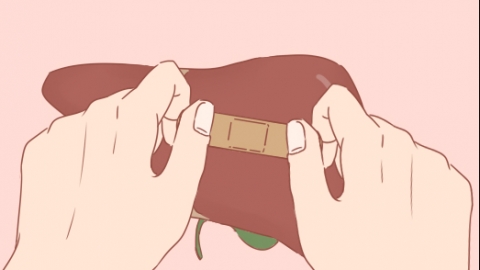How to manage poor liver and gallbladder function
Under normal circumstances, poor liver and gallbladder function may be caused by long-term high-fat and high-sugar diets, chronic sleep deprivation, non-alcoholic fatty liver disease, chronic cholecystitis, or chronic viral hepatitis. It is recommended to seek medical attention promptly, identify the underlying cause, and then improve the condition under a doctor's guidance through lifestyle modifications, medications, and other treatments. Specific explanations are as follows:

1. Long-term high-fat and high-sugar diet: Excessive consumption of fried and sugary foods leads to fat accumulation in the liver, increasing the metabolic burden on the liver and gallbladder and causing functional abnormalities. Adjust your diet by reducing intake of foods such as fried chicken and cakes, increase consumption of fiber-rich fruits and vegetables like spinach, celery, and apples, use steaming or boiling as cooking methods, and control daily fat intake.
2. Chronic sleep deprivation: Staying up late prevents the liver and gallbladder from resting properly, impairing their metabolism and detoxification functions, which can lead to toxin buildup. Maintain a regular sleep schedule by going to bed before 11 PM each night, ensure 7–8 hours of sleep, and avoid staying up late for work or entertainment, allowing the liver and gallbladder sufficient time to repair during the night.
3. Non-alcoholic fatty liver disease: Excessive fat deposition within liver cells impairs liver function; this condition often presents without obvious symptoms. Patients should follow medical advice to take hepatoprotective medications such as silybin capsules, polyene phosphatidylcholine capsules, or diammonium glycyrrhizinate enteric-coated capsules. Additionally, engage in regular aerobic exercise such as brisk walking or jogging 3–5 times per week for at least 30 minutes each session to reduce hepatic fat accumulation.
4. Chronic cholecystitis: Chronic inflammation caused by bile duct obstruction or bacterial infection affects bile storage and excretion, often leading to abdominal pain after consuming greasy foods. Patients should follow medical advice to take medications such as ursodeoxycholic acid capsules, anti-inflammatory and cholagogue tablets, or belladonna tablets to relieve symptoms.
5. Chronic viral hepatitis: Prolonged liver infection with hepatitis B or C viruses damages liver cells and causes abnormal liver function. Patients should follow medical guidance to take antiviral medications such as entecavir tablets, tenofovir disoproxil fumarate capsules, or interferon α-2b injection to suppress viral replication.
In daily life, maintain emotional well-being and avoid prolonged anxiety or irritability, as emotional fluctuations can easily disrupt the liver and gallbladder’s regulatory functions. Drinking chrysanthemum tea or goji berry tea in moderation may help clear liver heat and improve vision. Also, avoid indiscriminate use of medications to prevent drug-induced liver injury. Comprehensive lifestyle adjustments are essential for maintaining liver and gallbladder health.




